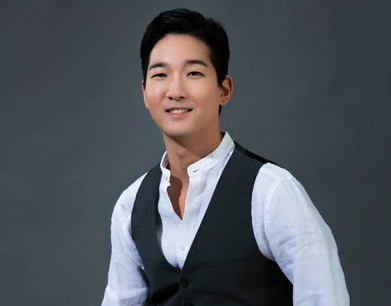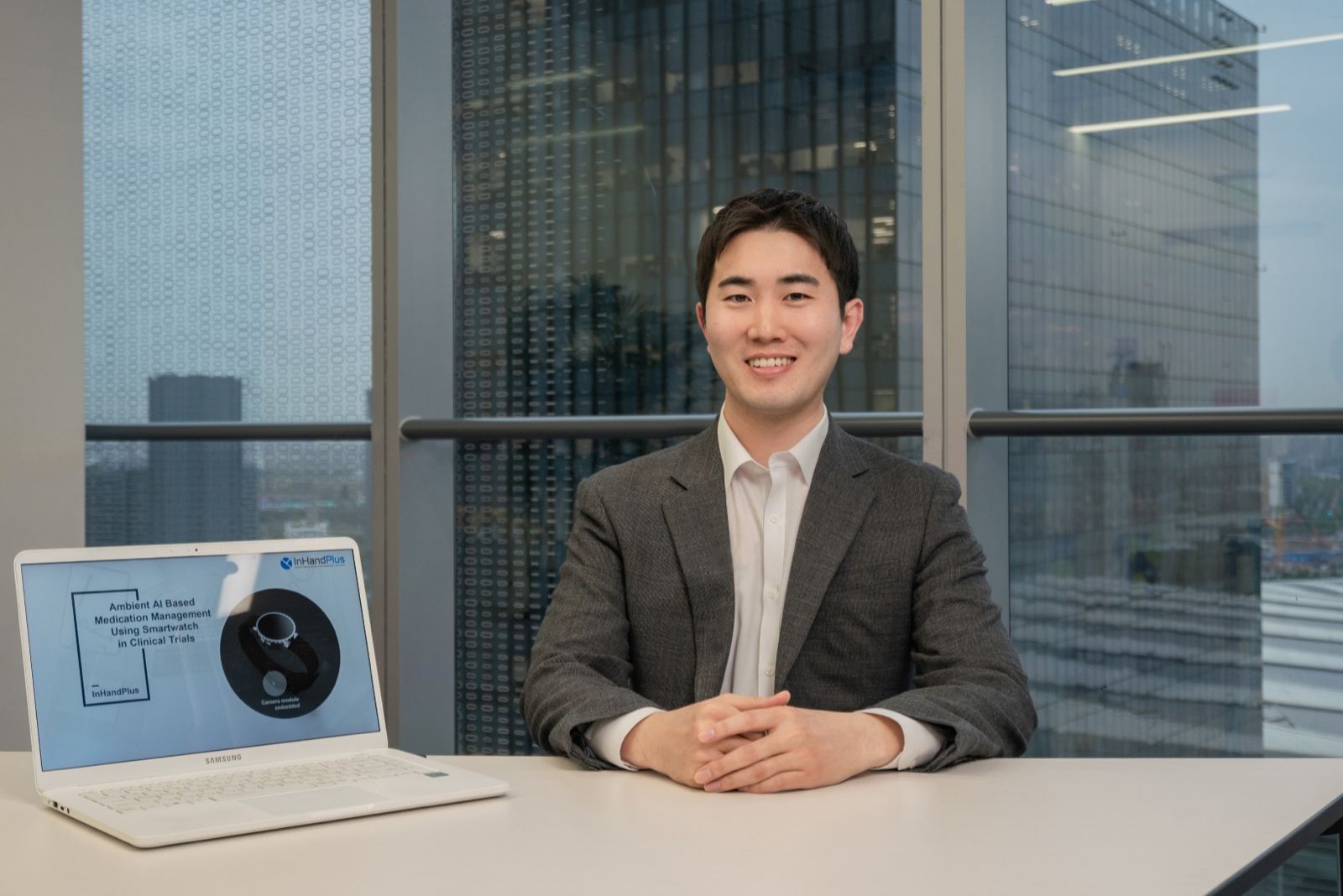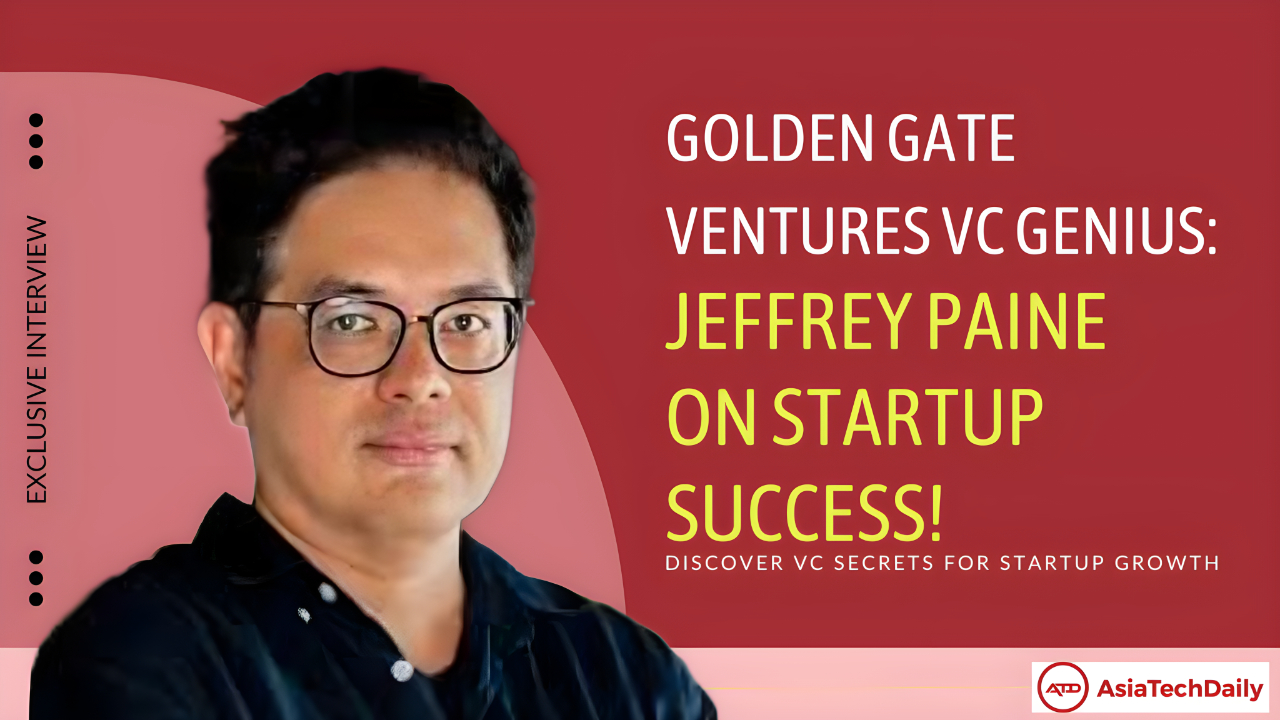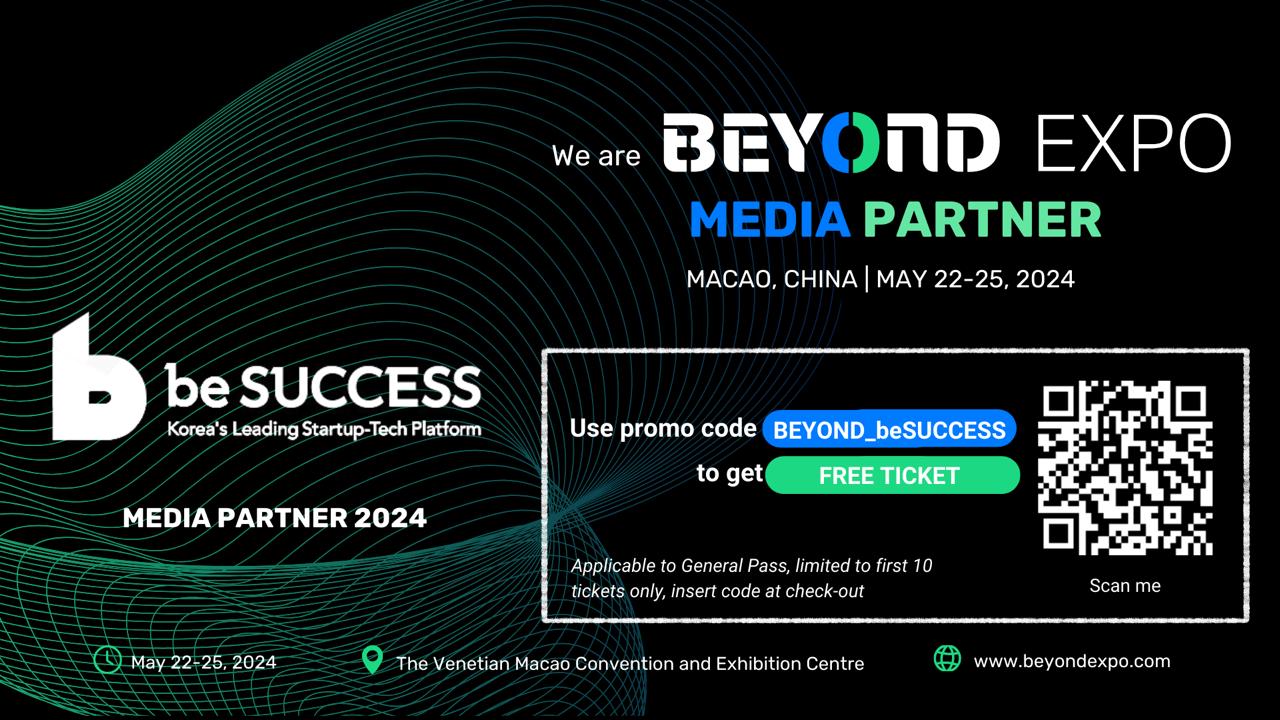AsiaTechDaily – Asia's Leading Tech and Startup Media Platform

John Lee, Founder And CEO Of H2O Hospitality- Managing Properties Without Any On-site Human Resources
John Lee is the founder and CEO of H2O Hospitality. Founded in 2015, H2O Hospitality is the largest vacation rental management company in Japan and Korea. H2O manages accommodation facilities without any on-site human resources by automating all the operational flows through a property management system. H2O manages calendars between the guests, rooms, and housekeepers. This allows a significant decrease in fixed cost of the operational expenses, increasing the yield of the facility.
John studied hotel admin from Cornell University. He found a place in the prestigious Forbes 30 Under 30 Asia – Consumer Tech in 2018 as well as Forbes Korea 20/30 Power Leader – Tech in 2019.
In an exclusive interview with AsiaTechDaily, John Lee says:
I believe having a clear vision and dream is very important when founding a company, but if you have the above concept embedded in your head, it will be much easier for you actually to achieve your vision and your dream.
Read on to know more about John Lee and his journey:
Please tell me about your personal background, and what are you working on currently?
John Lee: My name is John Lee, and I am Korean-Canadian, born in Vancouver, British Columbia. I am the founder and CEO of H2O Hospitality.During my time at Cornell Hotel School, we were taught more on how to serve the customers (guests) better, but I always believed that the core value of the hospitality industry is how to increase the yield of the real estate. I always felt that managing just one building at a time with high fixed costs (front desk, housekeeping department, etc.) was very inefficient from the building owner’s point of view. So, after a few years of banking experience at Morgan Stanley, I wanted to start a new concept of hotel business that has a different operational flow: A hotel operation that does not require full-time staff within the building.
What motivated you to get started with your company?
John Lee: After seeing how rapidly the vacation rental industry grew over the last decade, I could see that the hospitality industry was facing a paradigm change not only from a guest point of view but also from the operator’s point of view as well. I wanted to build a company that could fit this next-generation hospitality paradigm.
What is your current main product, and (If there is any) can you share any product pivot story from founding to the current product?
John Lee: Initially, I founded H2O in Korea back in 2015, but 3 significant macro trends in Japan hotel industry caught my attention: 1) strong domestic tourism base 2) increasing inbound tourists, 3) massive shortage in supply.
After realizing the market opportunity, H2O acquired a Japanese cleaning company that focused its client base to vacation rental owners. We eventually developed this cleaning company into a virtual housekeeping department for all of our managed properties in Japan. (usually, housekeepers are fixed costs for hotels, but we converted this into a variable cost per booking, resulting in a higher yield per property)
In 2017, H2O started as a housekeeping platform that covered all kinds of accommodations in Japan. Still, starting from 2018, we expanded our spectrum to full hospitality management service, including property development, yield management, revenue management, property management, hotel operations, and of course, offline management, which includes housekeeping service. H2O currently manages around 4,800 rooms in 6 major cities in Japan.
Key Aspect of our business flow is tech:
- Our PMS (property management system) is synced three different types of calendars: 1) calendar of the guest 2) calendar of the room 3) calendar of the housekeeper.
- H2O automates this process by linking all three calendars so that the room itself is not double booked from 25 different OTAs that are connected or the housekeeper’s schedule is not mixed.
- This allows H2O to manage revenue, schedule (guest + housekeeper), inventory, and yield per room basis for ALL the properties we manage at once.
- Traditional hotels cannot do this under their current operational method. For example, Marriott LA operator cannot manage Marriott NYC as they only manage “one building” not the overall global properties at once.
4 Significant differences between H2O hotels and tradition hotels are:
- Traditional hotels have front desks with a bunch of staffs, but H2O uses smart locks + online checking (No front desk): lowers fixed cost + faster check-in and check-out process
- Traditional hotels have in-house housekeeping department, but H2O only has linen room within the building, and housekeepers come and go using their app that is connected with the PMS (that manages their schedule)
- Traditional hotels have 99% phone-based CS, but H2O uses 99% chat-based CS: lowers the # of CS staff needed, allowing lower fixed cost
- Traditional hotels’ management style is managing one building by one building, but H2O manages numerous properties at once.
This allows H2O to dramatically decrease the actual fixed cost of original hotel operation, allowing a higher yield of the real estate.
How much money (funding) have you raised in total so far? When was the recent funding round?
John Lee: We have raised $18M. The latest funding round was 2019 November.
How have you attracted users and grown your company from the start? And Which were your marketing strategies to grow your business?
For our business we have two different types of “users”: 1) building owners + 2) guests
1) Attracting building owners:
Attracting hotel owners/operators in Japan was extremely difficult initially in Japan as a business is in Japan is executed based on “credit.” Still, we were a foreign company with foreign CEO. What we did well from the start was positioning ourselves not as a hotel management company, but as a housekeeping platform company. In the hospitality management pyramid, housekeeping is in the lowest ground (the highest being real estate investor), and we targeted the lowest foundation first. The Japanese hotel industry was booming, but because of its aging population trend, Japan was also suffering from a shortage of blue-collar laborers.
After becoming the largest housekeeping platform company in Japan, we started to expand our business within our client base vertically. We managed to convert most of our clients from just housekeeping to full operation of hotels. The biggest reason that we could achieve this: higher yield. It’s simple. If you make higher yield for your client, they give you more properties. The automation of hotel operation of H2O allowed staff-less management for hotels, and this dramatically decreased the existing fixed costs of hotel operation, the yield jumped around 3~4x when we operated. And clients started to give us more properties.
2) Attracting the guests:
This was actually much easier compared to #1, as Japanese market was already experiencing increasing in-bound demand and shortage of accommodation supply. So, H2O focused on CPS (Cost Per Sale) marketing model. We tried to connect as many global and local OTAs (online travel agencies) through API with our PMS as we could which resulted in 25 OTA connection. H2O is currently paying around 3%~12% commission per booking to these OTAs which is the cheapest and most efficient way of attracting guests. (FYI, H2O’s properties had a 91% average occupancy rate in 2018~2019)
Which is the best marketing tool for the growth of your startup, and why?
John Lee: For B2B marketing (building owner side), having an army of KPI-oriented sales team is extremely important. For B2C marketing (guest), exactly knowing your CPS data is crucial. So, we used OTAs, which fixed CPS for us.
What do most startups get wrong about marketing in general?
John Lee: I personally think the term “marketing” is very vague. (frankly speaking, I still cannot fully understand what it means) Therefore, it’s crucial to know what your goal is before spending any money on marketing. If you don’t know what you want to achieve or if you don’t know what you will collect, then you are wasting money on nothing. I personally do not recommend spending any money until you are very clear with your exact cost per your goal (it can be CPC (cost per click), CPA (cost per action), CPI (cost per install), CPS (cost per sales), CPM (cost per mille), etc.)
Many startups waste a lot of money on “marketing” without figuring this out. Branding marketing is a whole new story, which I’m also still working on a lot, but I believe marketing should be based on data, and if possible, it should be directly connected with your financial data.
What were the internal decision processes in determining when to begin fund-raising, and what were the logistics for this? And how many investors have you met so far, and how did you meet these investors and which channels worked best for you?
John Lee: Internal decision process:
Before BEP: After checking the burn run rate, set the “cliff date” when you run out of cash, and date backward 18 months, and start funding process and target to close within 12 months
After BEP: After checking unit economics and working capital growth, set the minimum target funding amount, and start the funding process
I have met with around 50 investors, Individual investors: friends & family, Institutional investors: for earlier rounds, through demo day events. For later rounds, investors contacted the company to set up meetings. The best way for me to meet an excellent institutional investor was through existing shareholders.
What are the biggest challenges you’ve faced and obstacles in the process of fund-raising? If you had to start over, what would you do differently? (Your insight or advice on this would be beneficial for startups)
John Lee: One of the mistakes I made was receiving too much money in the earlier rounds. We only needed around $200K for our seed round but had a demand of $3MM, and we decided to take $1MM, which resulted in many different over funding issues within the company, and of course, unnecessary dilution of shares. To learn from my mistake, we only receive the minimum amount we need to hit our target number for the next steps. For example, 2017 we received $8.5MM funding, but in 2019 (next funding after 2017) we only received $7MM (the valuation was 3x that of 2017 funding). Do not over raise money, and make sure you are very clear on how much you exactly need to hit your next goal.
What are your milestones for the next round? And what are your goals for the future?
John Lee: 2020 goal: H2O still is at a “growth” stage. We have been internally targeting 300% yearly growth in revenue every year since 2016, and we have been achieving that goal every year. So hopefully, we can achieve that again this year and hit $20MM in revenue this year. H2O has already proven that we can make money while we are growing, so this has been the differentiating factor compared to other “growth stage” companies
Mid-term goal (3~5 years): We want to be #1 hospitality management company in Japan in terms of both revenue and # of rooms managed.
Long-term goal (5~10 years): We want to be the largest hospitality management company in Asia.
How do you plan to expand globally?
John Lee: The Japanese hotel industry is a $90Bn yearly revenue market, so H2O still has a long way to go to become the largest hospitality management company in Japan. However, we do have plans to expand to Southeast Asia and Korea.
Top-bottom strategy: 80% of our clients (hotel owners) are Japan-based, but 20% are actually from overseas, and they have a lot of real estates all around Asia. These clients have already been asking us to manage their properties in Southeast Asia, so once we are ready internally to expand abroad, we will be able to source properties quickly.
Bottom-top strategy: 30% of our housekeepers are Japanese, and 70% of our housekeepers are foreigners with a Japanese visa. Most of these foreign housekeepers are from Southeast Asia, and we are planning on setting up a physical training center in Malaysia and Thailand to create an additional funnel to source housekeepers. Once this infrastructure gets activated, we’ll also have the offline factor of management angle in Southeast Asia.
What are the most common mistakes companies make with global marketing?
John Lee: Currently, we are using global OTAs as a sales channel for our properties, and we haven’t done any direct global marketing yet, so not sure if I can answer this.
What are the most common mistakes founders make when they start a company? (or What should all first-time startup founders know before they start their business?)
John Lee: I think many founders believe that they can do everything by themselves. Some sporadic cases that could be true, but 99.9% of the time, that is impossible. So, what the founders need to know very clearly is their weak point, and find someone who can fill in your weak point for your company. People always say that having a “good team” is crucial when you found a company, and how I defined “good team” was “me and people who can do the things that I cannot do (or do much better than I do).” At the end of the day, companies are built by people, not machines, so having a good team is the most critical Aspect when you first found a company.
On the flip side, I also recommend early-stage startup founders not to get too attached to your initial team. You have to realize that people with different skill sets are needed for a different stage of your company and realize that each employee can be replaced. The reason I say this is that some of the early-stage founders get depressed when one employee quits, but that should not be a problem if you always prepare your plan B and replace the person with another talent.
What’s the best advice you’ve ever received? And What advice do you have for someone who is interested in doing similar things like yours or in a similar direction?
John Lee: The best advice I got was from one of my mentors, and he once said that “if you can fully understand the core value of the business you are in, you will be able to disrupt that business with a different angle.” I always believed that hospitality management is just one of many methods of managing your real estate, and at the end of the day, the core value of the business is how to increase the yield of the real estate. I have been and still am working on improving this value through different tech, operational flow, and management mindset, so hopefully, I can actually change the concept of “hotel management” like our company name H2O (H2O = hospitality 2.0, but with alphabet O)
What are the one or two things that you would do differently to improve your life (or what kind of personal habits would you improved?) if you could go back to 10 years ago?
John Lee: Rather than learning supply and demand through an economic textbook or in front of the Bloomberg machine, I would tell myself to go out and try to sell anything, whether it is an apple or hotdog. This actually will give you a clear concept of how low a price you can create/achieve your product and how high a price you can sell your product and what kind of margin you can achieve through this transaction.
I believe having a clear vision and dream is very important when founding a company, but if you have the above concept embedded in your head, it will be much easier for you actually to achieve your vision and your dream.
You can follow John Lee here.
Are you looking to secure investment for your startup or a keen startup enthusiast, keep an eye on our interview section.
Follow Asia Tech Daily to know about the innovative startups and how they are revolutionizing the ecosystem.





